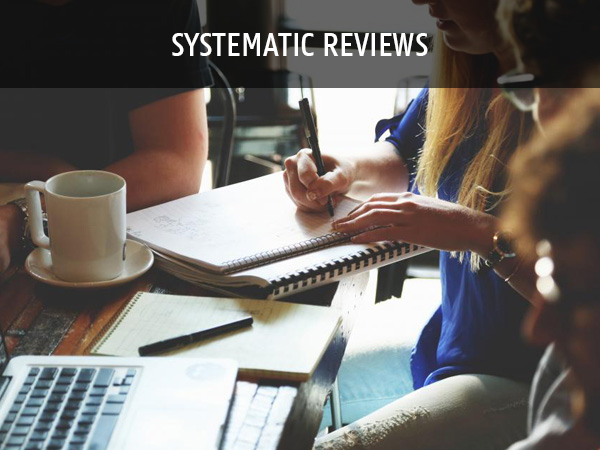Opleidingsmodules
Turn your manuscript into a publication: a toolbox for authors
Online course via Microsoft TeamsEditors of (bio)medical journals today receive an overload of scientific articles. Articles that fit within the scope of the journal and comply with international standards in terms of reporting as well as the journal's regulations are eligible for peer review. During this introductory session, tips & tricks and a toolbox are provided to increase your [...]
CINAHL
Online course via Microsoft TeamsDo you want to explore the features of this database including nursing evidence? Do you have the feeling you can find too many or just too few scientific articles in CINAHL? Are the articles you find often irrelevant? Do you feel you are losing a lot of time in your literature search? Then do not [...]
Systematic review: risk of bias and quality assessment
Online course via Microsoft TeamsWith a systematic review you aim to collect all evidence about your research question and to assess its quality. Thanks to this session, you will learn which tools to use for which type of systematic review and we will elaborate on the Cochrane Organization's Risk of Bias Tool and GRADE. Highly recommended for those conducting [...]
Web of Science
Online course via Microsoft TeamsDo you want to explore the features of searching in this multidisciplinary database? Then do not hesitate to enroll. Learning outcomes of the course Upon completion of this course, participants will have an understanding of which source is most suitable for which research question and goal, an understanding of stemming and lemmatization, the skills [...]
Conducting and publishing a systematic review and meta-analysis (5 half days) (ENG)
Online course via Microsoft TeamsThe Specialist Course “Conducting and publishing a systematic review and meta-analysis” is a Specialist course part of the Doctoral training programme given by the Knowledge Centre for Health Ghent and the Biostatistics Unit, with the support of the Flemish Government and the Doctoral Schools of Ghent University. Target group Since it is an interactive workshop [...]
Understanding (your) research metrics
Online course via Microsoft TeamsGenerally speaking for researchers, the availability of metrics depends on your research output being available online. Individual researchers might use metrics as evidence for job or grant applications or to inform a publication and communication strategy. Beyond personal interest, research metrics are used to rank and to benchmark universities and to drive policy and funding [...]
Wetenschapscommunicatie met de onderzoeksgemeenschap
Online course via Microsoft TeamsEen goede zichtbaarheid van wetenschappelijke output, zorgt voor een groter bereik en mogelijks impact van het wetenschappelijke werk van de onderzoeker, zowel op maatschappelijk, wetenschappelijk als economisch vlak. In deze informatiesessie willen we onderzoekers ondersteunen in het vinden van de juiste communicatiestrategie om de zichtbaarheid van wetenschappelijk onderzoek te verhogen. Sociale media (zoals LinkedIN en [...]
Rayyan.ai for systematic reviews
Online course via Microsoft TeamsRayyan.ai for systematic reviews is a free Web tool developed for researchers creating a systematic review (or other form of evidence synthesis). This tool facilitates the screening process by title and abstract and the full text evaluation. Users of this tool indicate the ease of use, time savings, blinded screening and easy sharing of reasons [...]
Conducting and publishing a systematic review and meta-analysis (5 half days) (NL)
Online course via Microsoft TeamsThe Specialist Course “Conducting and publishing a systematic review and meta-analysis” is a Specialist course part of the Doctoral training programme given by the Knowledge Centre for Health Ghent and the Biostatistics Unit, with the support of the Flemish Government and the Doctoral Schools of Ghent University. Target group Since it is an interactive workshop [...]
Embase (via the embase.com interface)
Online course via Microsoft TeamsDo you want to explore the features of database, seen as the European ‘counterpart’ of PubMed? Do you have the feeling you can find too many or just too few scientific articles in Embase? Are the articles you find often irrelevant? Do you feel you are losing a lot of time in your literature search? [...]



